![]()
Wed, Feb 16, 2011 | The Rubin Report | By Barry Rubin
Ex-Muslim Brotherhood Moderate Warns About…the Muslim Brotherhood
This is really interesting. All along we have been told that there is a moderate faction in the Muslim Brotherhood. And there was: the people who wanted to form the Al-Wasat Party (Centre Party) years ago. But they were shut up by the Brotherhood’s leadership.
Now, the former leader of that effort — which was used to paint the Brotherhood as moderate — announced that he quit the Brotherhood in the 1990s. In other words, the moderates left or were forced out.
And what is the evaluation of Abou Elela Mady (not my preferred transliteration)? Here is a quotation from the interview he gave to Reuters:
“If parliamentary elections happen now, the only party ready are the Muslim Brotherhood. As for the rest, they are not,” Mady said. “We have had dialogue with all the parties. We ask for a transitional period for a year in which there is freedom for parties and organisations,” he said.
“Parliamentary elections need time so that there is a chance for all parties to reform themselves, to rebuild,” Mady said.
So in other words the former leading moderate in the Brotherhood predicts that the Brotherhood might win a parliamentary election. I don’t think they are likely to win but they are going to do very well.
Remember how during the revolution, those of us who said the Brotherhood was strong were ridiculed. Now the truth is coming out. To be fair, Mady compares the Brotherhood to the Turkish AKP. I think that’s reasonable if one interprets it as a radical party that pretends to be moderate until it gains power and then step by step pushes for Islamism.
Once again, I don’t think the Brotherhood is going to take power and make Egypt an Islamist state. I think that either the Brotherhood will be a very powerful and increasingly strong opposition party or will participate in a government coalition and leverage that into growing power.
Having an anti-Brotherhood president would mitigate their power. But if the first government falters — not being able to deliver better living standards — the Brotherhood will be waiting for its opportunity in several years.
You can read the following article for more detailed information on the Al-Wasat Party and its principles below. It was published in Egypt Today Magazine and written by Abdalla F. Hassan, June 01, 2004 titled “The Splinter Group”:
The Splinter Group
Originally made up of refugees from Al-Ikhwan (Muslim Brotherhood), Al-Wasat looks to beat big brother to the punch in its quest for political legitimacy.
The story of a political movement called Al-Wasat, meaning middle or center, begins with a younger generation of activists who brought new political vigor to the Muslim Brotherhood, but later clashed with its elder leaders.
They broke away in 1995 and launched a party with an Islamic perspective, but one that also aimed to include a range of political trends and groups including Coptic Christians, leftists, Marxists and Nasserists who share a vision of an Islam that unifies a nation.
Al-Wasats founders applied twice, in January 1996 and May 1998, to become a registered political party, and on both occasions the government turned them down. Theyre now trying for a third time: On May 17 [2004], the New Wasat Party formally submitted another request to the Shura Councils Political Parties Committee to become a registered political party.
A year ago, it embarked on a revision of its political platform, collecting proposals and suggestions from Al-Wasats founders.
Abou Elela Mady, one the founders of the moderate, pluralistic movement, is optimistic the outcome may be better this time around.
“We were seeking the license of public opinion before the official license from the state,” he says, believing that Al-Wasat has won wider public acceptance (and perhaps support) than when it first emerged eight years ago.
“People say, Dont you know that you will get rejected? Yes, I know, but I am the owner of a right. One has to persist, and in time the other side will accept,” he says.
The New Wasat Party has more than 100 founding members, seven of them Copts, spread over 16 governorates. Mady is named as the trustee (wakil, also legal representative) on the partys application.
To create a dynamic party and avoid a stagnant ruling echelon, the party’s bylaws lay down term limits for the party leadership, restricting the party’s secretary-general to no more than two four-year terms.
Mady wants to infuse new blood into the political process, believing that a movement promoting democracy is more important than the narrow agendas of particular political groups.
“We are an idea that is democratic, national, and Islamic. We fuse those three elements,” he claims.
Al-Wasats platform is based on the principles of Islamic Shariah and embraces a modern view of Islam and its role in society. The party’s agenda, detailed in a 40-page program, holds nationality as the basis of citizenship and rejects discrimination based on religion, gender, color or creed. It affirms the right of personal beliefs, the equality of the sexes, freedom of thought and expression, respect for civil, political, social, economic and human rights, and the right to collective action, peaceful protest and strike.
Like the Brotherhood and recognized opposition parties, it advocates the lifting of emergency law and a judiciary that is independent of the executive branch. More unique is the detail devoted to the outline of an economic program that encourages a free economy, develops small-and medium-sized enterprises, protects consumers, and promotes Arab economic cooperation.
Socially, the party proposes solving the problem of unemployment and illiteracy, alleviating poverty, reforming education, building an information society, and improving health care.
Mady was active in the Islamic student movement in the 1970’s and the student union president of his university in Minya. He joined the Brotherhood in 1979 and was an organizer in its professional syndicates and parliamentary campaigns. From 1985 to 1995, he served as assistant secretary-general of the Engineers Syndicate, and was a candidate for the Peoples Assembly in 1995. He also founded the International Center for Studies, a political think-tank with an office in Downtown Cairo.
When Al-Wasat was launched, it faced vigorous opposition from both the Brotherhood and the government. Mady and 12 colleagues were arrested and tried in military court for allegedly forming a Brotherhood front organization. They were eventually acquitted, but spent five months in jail.
“Al-Wasat is essentially a Brotherhood movement,” says Essam El-Erian, a senior Brotherhood official. “They were young members of the Brotherhood who were asked to create a party and when they created it, the Brotherhood leadership saw a mistake in the procedures, so they asked them not to proceed in front of the judiciary. They refused.”
Here, the chasm between the Brotherhoods old guard and its younger leaders widened.
“They accused the Brotherhood of dictatorship and preventing free ideas and individual rights,” says El-Erian. The Brotherhood accused them of colluding with the government to establish a party to undermine the Brotherhood.
Mady is even less conciliatory. Since tendering his resignation from the Brotherhood, he has disavowed any connection between the banned-but-tolerated group and Al-Wasat.
“The Brotherhood for us is in the past. Our connection with the Brotherhood has ended at all levels,” says Mady. “The Brotherhood is an Islamic association. We are a civil political party.”
“The Brotherhood still needs to develop itself and develop its ideas. The executive leadership still wants to keep matters as they are. That is the atmosphere that helps them control the association,” he says, adding that he has not personally witnessed any encouraging changes in the organization in the last five to ten years.
“The Brotherhood,” Mady continues, “has not yet adopted progressive political ideas or formulated a cogent ideology when it comes to democracy or the role of women and Copts. We have developed a lot in this respect, and we now have a very clear position: equality of rights between Muslims and non-Muslims, equality between men and women, embracing democracy.”
“We present a positive understanding of Shariah,” says Mady, who sees no conflict inherent in a political system rooted in religion. “Faith has been an enduring part of Egyptian life for thousands of years, governing society and preserving its balance and unity, helping it persevere.”
Source: Al-Wasat Party. Link to original article (http://www.egypttoday.com/article.aspx?ArticleID=1683) is not working.



 RSS
RSS

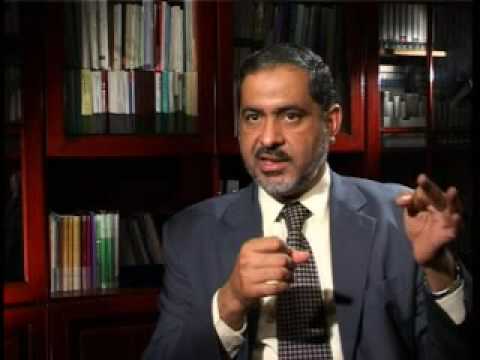
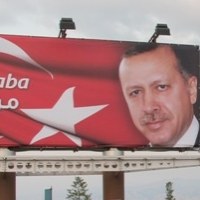
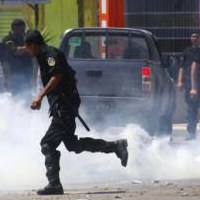
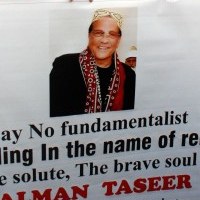
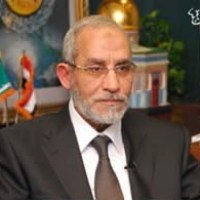
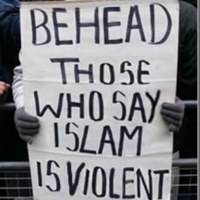




#Egypt: Ex-Muslim Brotherhood Moderate Warns About… the #MuslimBrotherhood | #Jan25 #Islamism #Elections http://j.mp/e86la6
New party shows deep political change in Egypt http://goo.gl/XOhMa Al-Wasats platform based on principles of sharia http://goo.gl/x4EP2
New party shows deep political change in Egypt http://goo.gl/XOhMa Al-Wasats platform based on principles of sharia http://goo.gl/x4EP2
[…] Ex-Muslim Brotherhood Moderate Warns About…the Muslim Brotherhood … […]